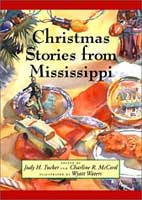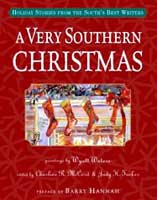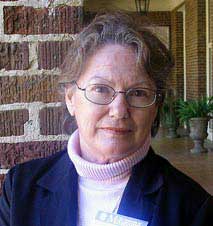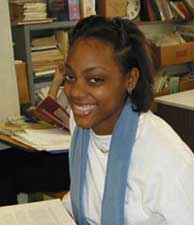Major Works
- Coming Home to Mississippi (2013) with Charline R. McCord
- Christmas Stories from Mississippi (2010) co-editor with Charline McCord, illustrated by Wyatt Waters
- “Clara’s Star”
- A Dixie Christmas: Holiday Stories from the South’s Best Writers by Charline R. McCord, Judy H. Tucker, Fred Chappell, and Wyatt Waters ( 2005)
- A Very Southern Christmas: Holiday Stories from the South’s Best Writers (2003) co-editor with Charline McCord
- Painting Home (paintings by Wyatt Waters captioned by Judy Tucker)
- Another Coat of Paint (Judy Tucker researched and wrote captions for Wyatt Waters’s paintings)
Judy Tucker: A Biography
by Embree Moore (SHS)
Judy H. Tucker was born in Hopoca in Leake County, Mississippi, on August 6, 1939. Judy is the third of six children of Myra Murphy and Clay Sharkey Hall. She graduated from Carthage High School in 1957. Although she never graduated from college, Tucker states that she believes that there is a gene deep inside some of people that makes them want to write down their thoughts, beliefs and fantasies, as well as the events of their own lives. She adds that as far as she can recall she has always written. One of her first memories of writing was the time when she wrote on her grandmother’s wall with a pencil even though at the time she didn’t know the alphabet. When she did learn her alphabet, she began writing letters to pen pals. When she was ten, she won a ten-dollar prize from Progressive Farmer Magazine for an essay that she had written. Tucker says writing is a need that won’t let up; she compares it to an itch that needs to be scratch.
Tucker did not start writing professionally until she was in her forties. After her children grew up, she began taking classes at Millsaps College where a teacher made her believe that she could write and publish. Her teacher at the time worked with the Clarion Ledger and asked Tucker to do some book reviews. Tucker says, “At that time, I made a big push toward publishing. I didn’t want to die wishing I had tried.” Later, Tucker began submitting some of her essays to the local paper, the Northside Sun. Mississippi Magazine also published some of her essays and reviews. In addition, she did reviews for Planet Weekly.Later, she took some play writing classes. Her teacher liked her work and helped her to get her play produced. The play A Visit with Mrs. Jemison won the National DAR award and has been presented at DAR and historical society meetings. Tucker says that nothing is more fulfilling than seeing your work acted out on stage.
Nursery rhymes with the wonderful characters and their nonsense influenced Tucker as a child. Early she loved the fairy tales which were read to her by her third grade teacher Miss Sadie. By the time she reached grade school, she was into biographies of famous people and Nancy Drew and the Hardy Boys. She also says the King James Version of the Bible was an influence because of the majesty of the language as well as the structure of the stories.
 Judy Tucker has written four novels ( none of which have yet been published), two book- length non-fiction pieces, three plays, many poems and short stories and about a dozen essays. Her short story “Clara’s Star” has been published in Christmas Stories from Mississippi (University Press of Mississippi, 2001). She co-edited this book and A Very Southern Christmas (Algonquin, 2003) with Charline McCord. Volume Two of A Very Southern Christmas is slated for publication by Algonquin in 2004. She edited Painting Home, and Another Coat of Paint., both books of paintings by Wyatt Waters. She has published half a dozen essays, probably half a hundred book reviews, and a some poems. The three plays have been performed for the public. Of all Tucker’s works, she is most proud of “Clara’s Star” and the play “The Brooch.”
Judy Tucker has written four novels ( none of which have yet been published), two book- length non-fiction pieces, three plays, many poems and short stories and about a dozen essays. Her short story “Clara’s Star” has been published in Christmas Stories from Mississippi (University Press of Mississippi, 2001). She co-edited this book and A Very Southern Christmas (Algonquin, 2003) with Charline McCord. Volume Two of A Very Southern Christmas is slated for publication by Algonquin in 2004. She edited Painting Home, and Another Coat of Paint., both books of paintings by Wyatt Waters. She has published half a dozen essays, probably half a hundred book reviews, and a some poems. The three plays have been performed for the public. Of all Tucker’s works, she is most proud of “Clara’s Star” and the play “The Brooch.”
Currently, Tucker is working on a non-fiction book, but she does not want to disclose any information about that just yet. She and Charline McCord have edited the second edition of A Very Southern Christmas. When she is not writing or editing, she spends her free time gardening, watching CNN, and working on crossword puzzles and enjoy time spent with her grandchild. Judy Tucker also enjoys reading and keeping up with her dozens of cousins, nieces and nephews.
Reviews
A Review of Clara’s Star
by Embree Moore (SHS)
Clara’s Star, a short story written by Judy H. Tucker, is excellent. This short story is one that focuses on family and traditions. Tucker has a very unique and detailed way of writing. She finds a way to bring the reader into the story and makes the reader feel as if he or she is in the story. I personally enjoyed Clara’s Star because it is a story that just puts the Christmas spirit in every heart. This family-oriented story is sentimental, and it gives you the feeling of closeness toward your own family.
The setting is cold winter in Fair Hope, Mississippi, in 1939. Clara’s Star paints beautiful pictures of Christmas and family, making the reader wish she were there herself to experience this love that is felt throughout the story. The character list includes the dynamic and fascinating woman named Myriah, her daughters Clara and Annabelle, her husband Rob, and her caring and warm-hearted Aunt Maudie, the eighty year old narrator. Myriah, on a cold December day, has left the house, and the narrator remembers how the house had changed when Myriah came. It has changed again with Myriah’s absence. The previous Thursday Myriah and her daughters Clara and Annabelle had gone for a Christmas tree to The Other Place, called Hopaki by Clara. When the father Rob comes home, he puts the girls to bed, then asks if anything was unusual. He learns that the day before a letter had arrived for Myriah.
The narrator mentions that a letter took Myriah away from Fairhope and a letter also brought her in the first place. Edna, a professor emeritus from Boston College, had written that a young graduate student writing her thesis about the South needed a place to stay. Aunt Maude adored Myriah from the beginning and when Rob returned home, he fell in love with Myriah and married her. The narrator remembers Christmases of her childhood stories of an earlier Clara, whose cedar Christmas tree was brought from the Other Place, roots and all, and planted in full view of Clara’s room. Henry , the hired man, had fallen off a ladder ,and Clara’s sterling star with her name and date of birth (1826) engraved on it was left on the tree’s top. The night Myriah left, Grandma Clara’s tree fell.
The family prepares for Christmas without Myriah. Maude discovers that Clara has the silver star, which she says she got from her Mama’s trunk. The mystery of the star continues when Clara announces that she has another star which she found in the ice where Clara’s cedar tree was pulled from the lane. Clara, who Maude realizes has clairvoyance, knows her sister Annabelle, who is ill, will get well. In the morning, Myriah has returned and is sitting at Annabelle’s bedside. She finally tells her secret and the secret of the two stars and Hopaki (the Other Place).
I think that Clara’s Star is a wonderful story for all ages. Whether read by young folk or old folk, the plot reaches everyone. I recommend this short story to everyone. It speaks of family values and love and so much more. I hope that anyone that reads Clara’s Star finds the satisfaction that I found in it.
Interview with Judy Tucker (2003)
by Embree Moore (SHS)
Would you tell me your place of birth, birth date, parents’ names, high school, college, and any other memories that you would care to share?
I was born at home in Hopoca in Leake County, the very center of the state of Mississippi, on August 6, 1939, the third of six children of Myra Murphy and Clay Sharkey Hall. I graduated from Carthage High School, class of ‘57. No college.
When did you know you wanted to be a writer? Was there something in particular that encouraged you in becoming a writer.
I really do believe that there’s a gene deep inside some of us that makes us want to write down our thoughts, and beliefs and fantasies, as well as the events of our own lives. I always, from the very beginning, wrote. One of my first memories is of scribbling on the wall of my grandmother’s house with a pencil. I don’t believe I knew the alphabet at the time. As soon as I knew how to read and write, I was scribbling verses. I wrote letters to a pen pal; I still write letters. I won a ten-dollar prize for an essay from Progressive Farmer Magazine when I was ten. For me, writing was simply a need that would not let up, like an itch that must be scratched. Publishing–now that’s a different story. It is a necessary part of my compulsion, because it is fills my need to communicate with other human beings.
 Who were your inspirations on your journey to becoming the successful writer that you are? How difficult was it to get you first book published? How did you go about it?
Who were your inspirations on your journey to becoming the successful writer that you are? How difficult was it to get you first book published? How did you go about it?
I wrote, all through my life. Sometimes I didn’t bother to put down on paper what I wrote in my head; sometimes I did. I always read a lot. I didn’t believe it was possible for me to be published since I had no college and no connections to that world except through the books I’d read.
When I was in my forties and my children no longer needed me so urgently and I had a little more discretionary income, I began to take some writing classes at Millsaps College– adult Ed type things. A teacher there made me believe that yes, I could write, that yes, what I had to say was worthwhile and yes, I could be published. She helped me in many ways. She worked at the Clarion Ledger and she got me to review books for the paper. At that time, I made a big push toward publishing. I didn’t want to die wishing I had tried.
The Northside Sun, our community paper, published some of my essays, and actually PAID me to write some features once. I entered every contest I could find, won some. Mississippi Magazine published some of my essays and book reviews. I reviewed books for Planet Weekly, an entertainment newspaper in Jackson.
I took a class in play writing, and my teacher liked my work and helped me get my play produced at New Stage in Jackson. Subsequently, The Alabama Shakespeare Festival in Montgomery asked me over there for a week of workshopping. They presented a professional reading of one of my plays. My historical play A Visit with Mrs. Jemison won a national DAR award and has been presented at DAR and historical society meetings. I love play writing, and I intend to do more of it. There is absolutely no thrill like seeing your work on stage.
James Patterson asked me to do research and write the cut lines for Wyatt Waters’ books, ANOTHER COAT OF PAINT, and PAINTING HOME. Through this effort, I built my self-confidence as well as my contacts and my credits.
I began to host a group of writers in my home for weekly discussions and critique. This group– we called ourselves The Red Dog Writers– was instrumental in the production of my first book, CHRISTMAS STORIES FROM MISSISSIPPI. I decided that I would write a Christmas book. It seemed to me that this genre of publishing might be easier to break into. I wrote “Clara’s Star,” and then decided it was not big enough to stand on its own, so I asked my writers’ group to write Christmas stories with the hope of publishing them together as a book. Finally, with a manuscript in hand, I shopped for a publisher, starting locally. I was so convinced that the idea was marketable and the stories were good enough, I decided that if I did not find a publisher, I would put my money where my heart was and publish it myself. I didn’t have to. Charline McCord joined me as co-editor and Craig Gill at University Press of Mississippi bought the book and guided it through a very successful publishing process.
Who are your favorite authors? Who influenced you the most?
Favorite authors, influences? Oh, I wish there was room here to write about them all and thank them for the pleasures they have given me.
The nursery rhymes for their rhythm and wonderful characters and nonsense, as read to me by my mother. Early there were the fairy tales read to my class by a wonderful third grade teacher, Miss Sadie Freeny. In grade school, I loved Nancy Drew and the Hardy Boys and those biographies (in orange library covers) of famous people. I still love biography; the more minutely detailed the better. The King James Version of the Bible for the majesty of the language, the structure as well as the stories (not to mention that whole other realm). I memorized a whole lot of it in Miss Lavada Salers Sunday Sunday_School Class at Pleasant Grove Church. I like to believe that it has been a light unto my feet.
Thank you: Barry Hannah (GERONIMO REX) for making literature out of the familiar experiences of a ‘50s adolescence; Eudora Welty for making literature out of the experiences of ordinary people in ordinary circumstances. William Faulkner– he had the gene. He was genius. He used that old adage: write what you know. Oh boy, did he know his brethren! That little postage stamp of Yoknapatawpha covered all humanity and all history, didn’t it?
Thank you to every writer who ever had the faith and the courage to lay down a line of print.
Did you base any of you stories on your personal life?
Everything I write comes out of my personal life. If not the plot, circumstance and action, certainly, the characters reactions to these things. How else do we see the world? I can only imagine how my characters act because of my own reaction. I use familiar locations. I have mined Hopoca, the community where I grew up, for every rock and hill and field and creek. My family has owned the same piece of land (in Hopoca) and lived on it since before MS was a state. That’s about 175 years, isn’t it? That land, those tales, those people, that’s what made me who I am.
How many short stories, novels, etc., have you written? How many have been published?
I’ve written four novels, two book length non-fiction pieces, completed three plays, lots of poems, many short stories, probably a dozen essays. Of these, I’ve published “Clara’s Star” the short story. I’ve edited CHRISTMAS STORIES FROM MISSISSIPPI (University Press of MS, 2001), and A VERY SOUTHERN CHRISTMAS(Algonquin, 2003), with volume two of A Very Southern Christmas slated for publication by Algonquin in 2004. I contributed to PAINTING HOME, and ANOTHER COAT OF PAINT. I have published half a dozen essays, probably half a hundred book reviews, and a few poems. The three plays have been performed to the public. NONE of my novels have been published. Am I discouraged? You bet. Will I quit? Not yet.
What made you write “Clara’s Star”?
“Clara’s Star” originated in a little piece I did for my brother to give to his son along with a piece of Confederate memorabilia. It was a family reminiscence using the voice of an eighty-year-old woman, Maude Thornton. I finished the piece of writing but I wasn’t finished with Maude, or she wasn’t finished with me. She just kept popping up in my mind, so when I decided to write a Christmas book, Maude told me the story. I honestly felt like I was channeling Maude. The story was a gift to me. It truly was the easiest thing I ever wrote. Even after the book (Christmas Stories from Mississippi) was sold to UP and sold again at retail, sold out and reprinted, Maude wasn’t through with me, so I wrote a book, a novella, about Maude and Clara and Hopoca. I call it CLARA’S GIFT. It remains unsold today.
What are your thoughts about this short story?
“Clara’s Star?” I love the story because I love Christmas, our farm, Hopoca, my family. It is close to my heart. It was meant to be sweet and sentimental and evoke memories of the reader’s childhood and give me an opportunity relive my own. I wanted to remember a giant snowstorm when we were without electricity for, it seemed like, two weeks. I wanted to recall the sweet desire for Christmas and the disappointments and heartache, and I wanted to end with the fulfillment of the season’s promises. It could be better, but it could not be dearer to me. I have been told that the time line is sometimes confusing. I would fix that.
Of all your work which one do you think is your best work so far?
That’s like asking which is your best child. Certainly “Clara’s Star” has had the most commercial success. I love the play “The Brooch.” A last word here: I like to have “the better self” of my characters prevail. I like a happy ending though sometimes it must be bittersweet.
What type of student were you in high school?
I wasn’t a very good student, though I loved the study of literature, and I loved the sciences. I was pathetic in math. I always regretted that I wasn’t able to go to college but, the thing is, when I started writing nobody ever asked me what college degrees I had. So the one thing I could do–write– didn’t need college after all. If I’d gone to college, I probably wouldn’t be writing. I’d probably be doing something in the medical field because that interested me.
Was English your favorite subject? Why or Why not?
I hated the grammar/spelling part of English, which took up half the school year, but I loved it when we had to do book reports. Yes, I was that nerd who loved to do book reports. And I loved writing anything, and studying literature. If we had to read a portion of “Paradise Lost” (for instance) I’d read the whole thing and memorize parts of it. One time the teacher assigned a long term paper for us to write and then changed her mind and said we didn’t have to do it. I did it anyway.>
Are you in the process of writing a new book? If so what is it called and when do you think it will be published?
I am working with a publisher on a non-fiction book right now, but I don’t want to jinx the project by disclosing it. There’s always the chance that things won’t work out, and then I’d just have to come back to you and explain. I never really believe a project’s going to make until I hold the book in my hand. The editor could get fired; the publisher might go broke; the theater could burn; the world could end.
Charline and I are currently editing the second volume of A VERY SOUTHERN CHRISTMAS that Algonquin will bring out in the fall of 2004. (I’m confident about this one.)
Have you received any awards? If so, what are you most proud of?
I guess the award I’m most proud of is the DAR’s Evelyn Cole Peters Award in Drama. I took first in the nation for my historical play, which was about an ancestor, Mary Jemison, who was captured by the Indians in colonial days.
Besides writing, what else interest you?
I love gardening. I’m a news and political junkie. Watch CNN all the time. Work crossword puzzles. Dote on my grandchild. Read, of course. Keep up with my family and dozens of cousins, nieces and nephews all over the USA.
Has living in Mississippi influenced your writing? If so, how?
Oh, goodness. Yes, of course. The state, my family history, the attitudes, the race and class and economic issues that plague us. These made me what I am.
Do you have any advice for future writers and students in general?
Yes, I have advice for young writers and here it is: read; get into a writing program at the best university available to you. I know I said that publishers won’t ask what degrees you’ve got, but you really can learn something. Read; write; cultivate your writer-in-residence for all it’s worth. Listen to him/her. He might recommend you to his agent someday. Listen to advice. Process it and use what you need and discard the rest. Of course, the trick is having the wisdom to know the difference, isn’t it? Read; write. Only by reading good stuff can you trust your own ear. Read the kind of stuff you want to write. Find yourself a support group of other writers. No matter how much someone loves you, they cannot understand what you’re going through unless they suffer from the same affliction. Develop a thick skin. Always have a thesaurus at hand. Read; write. Persevere. If you believe in yourself, don’t quit. Do what you have to do. If you’ve got the writer gene, you won’t be able to quit.
Related Websites
Bibliography
- Tucker Judy H.. Email interview. December 18, 2003.
- Tucker, Judy H. and Charline R. McCord. Christmas Stories from Mississippi.Jackson: University Press of Mississippi, 2001.


